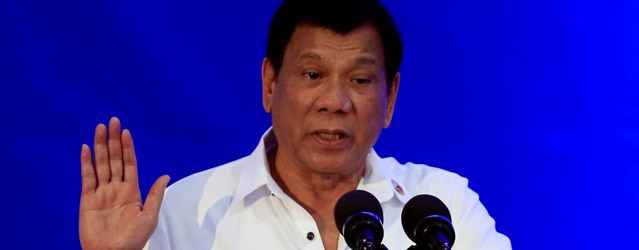With Trump at the helm in the US, Philippine president Rodrigo Duterte's anti-American rhetoric may backfire.

Anti-American rhetoric has dominated the political discourse of Philippine president Rodrigo Duterte since he assumed office in June, and economic risks are growing rapidly, from both his highly publicized pivot to China and potential changes in US policy.
Duterte’s shift away from the US and his verbal onslaught against its long-standing ally have unnerved investors. US companies constitute the main investors in the Philippines’ booming business-process outsourcing sector, which accounts for around 10% of gross domestic product, according to research firm Capital Economics. In addition, remittances from Filipino workers in the US account for 3% of GDP—and exports to the US, a further 4%—the firm estimates.
That makes the $9 billion in soft loans that Duterte garnered from China seem a gamble. Ebb Hinchliffe, executive director of the American Chamber of Commerce of the Philippines, tells Global Finance: “Duterte’s comments have spooked the business community a bit, (but) AmCham is hopeful the Philippines will remain one of the US’s key trading partners. Anti-American rhetoric has diminished, and we hope it doesn’t flare up again.”
President-elect Donald Trump may further press the Philippine economy if he makes good on his campaign promise to penalize companies that outsource jobs abroad. “If he followed through on this threat, it would be a huge blow to the Philippines,” says Gareth Leather, senior Asia economist at Capital Economics.
The Philippines also could suffer if Trump bans immigrants from areas with a history of terrorism, as he has threatened. More broadly, investors fret over the nationwide “state of lawlessness” first declared by Duterte in September, following a terrorist attack in Davao City. The benchmark Philippines Stock Exchange Index has declined some 14% during his time in office.
Under former president Benigno Aquino, the Philippines shed its reputation as the “sick man of Asia” to become one of Southeast Asia’s fastest-growing economies, attracting investment-grade credit ratings. In the second quarter, before Duterte became president, GDP growth reached 7%, the fastest pace in three years.



